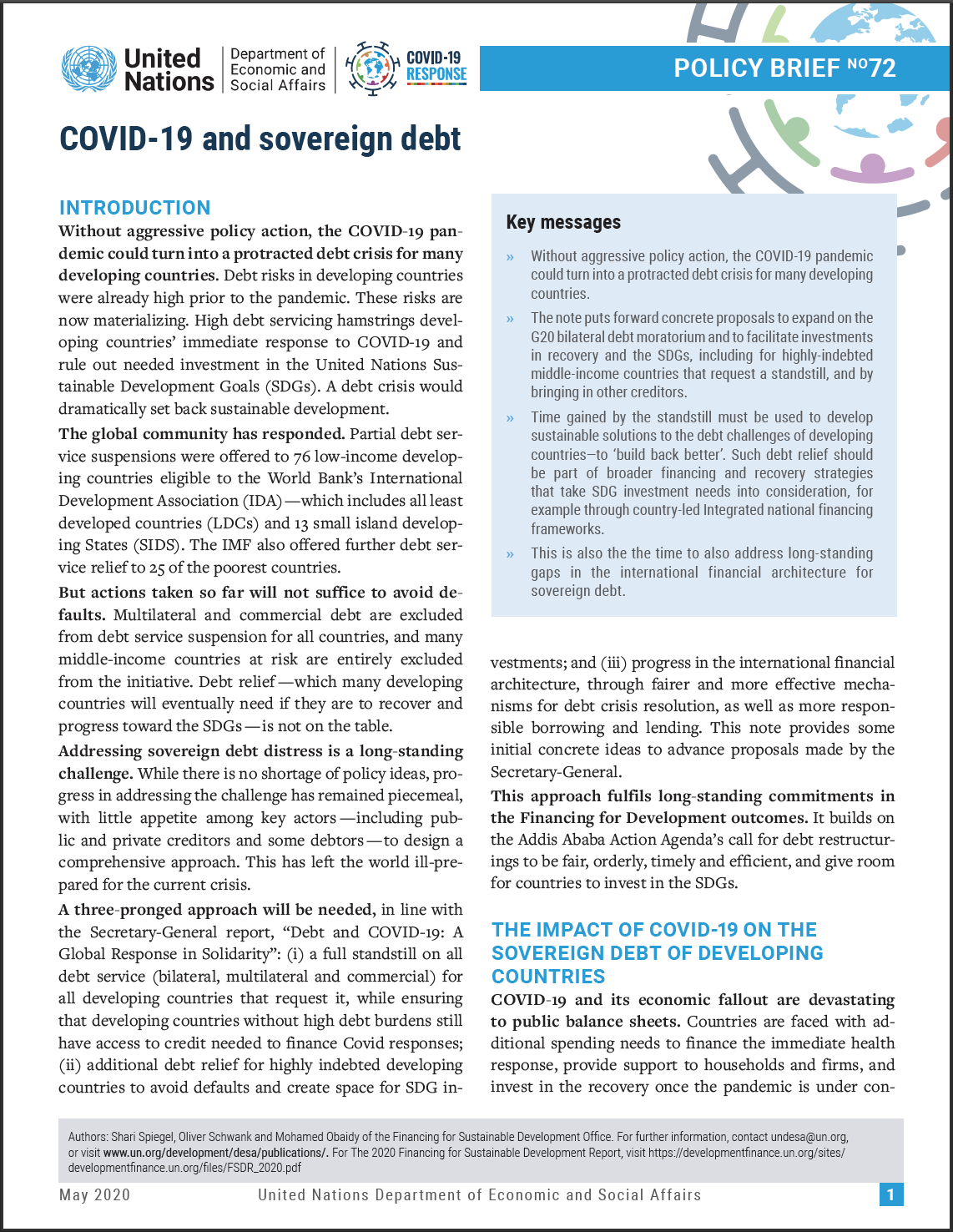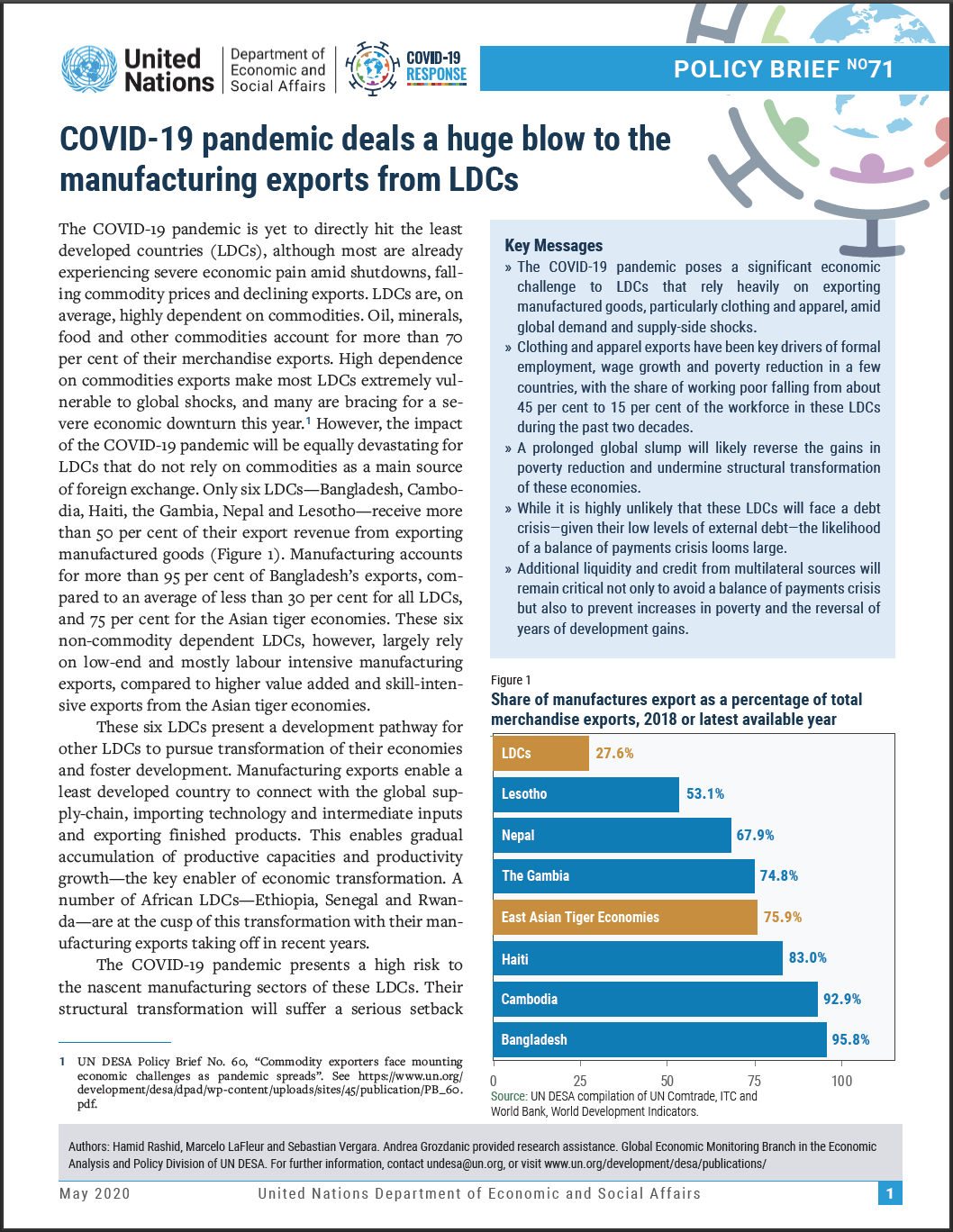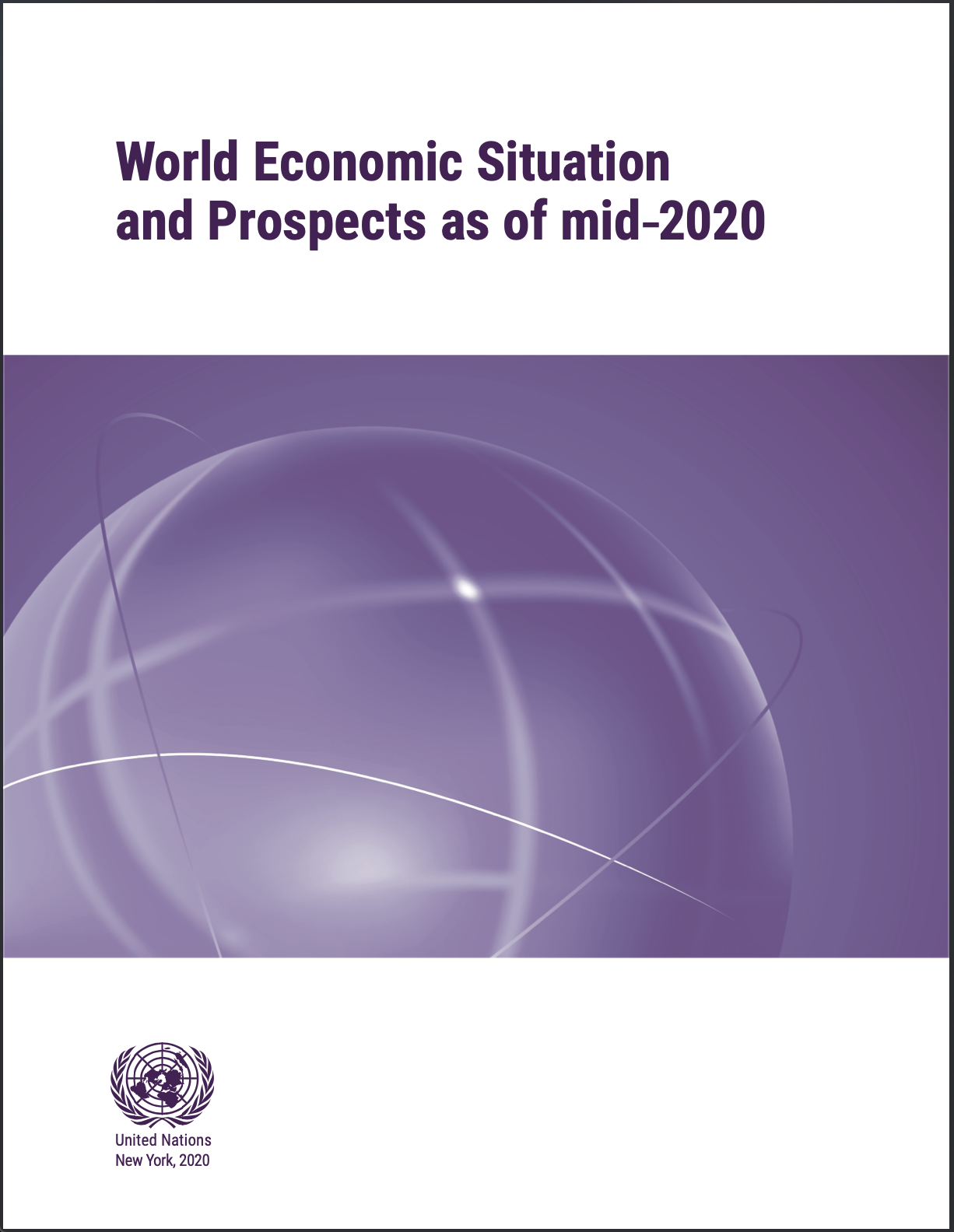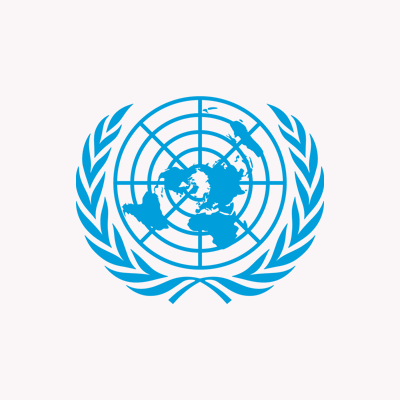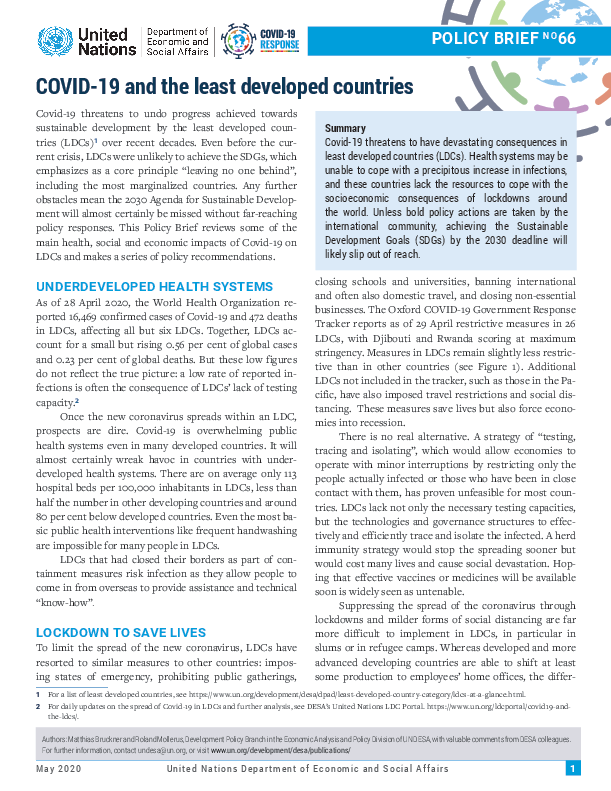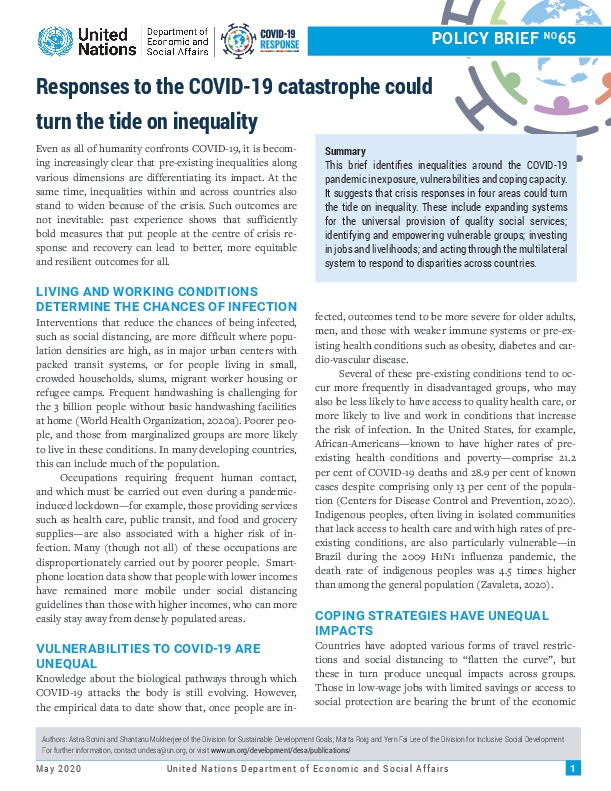Publications
Displaying 31 - 40 of 65
and the achievement of the Sustainable Development
Goals (SDGs) during this Decade of Action. However,
the response and recovery must be done in a way that
protects the human rights of all youth.
pandemic in exposure, vulnerabilities and coping capacity.
It suggests that crisis responses in four areas could turn
the tide on inequality. These include expanding systems
for the universal provision of quality social services;
identifying and empowering vulnerable groups; investing
in jobs and livelihoods; and acting through the multilateral
system to respond to disparities across countries.
 Welcome to the United Nations
Welcome to the United Nations
